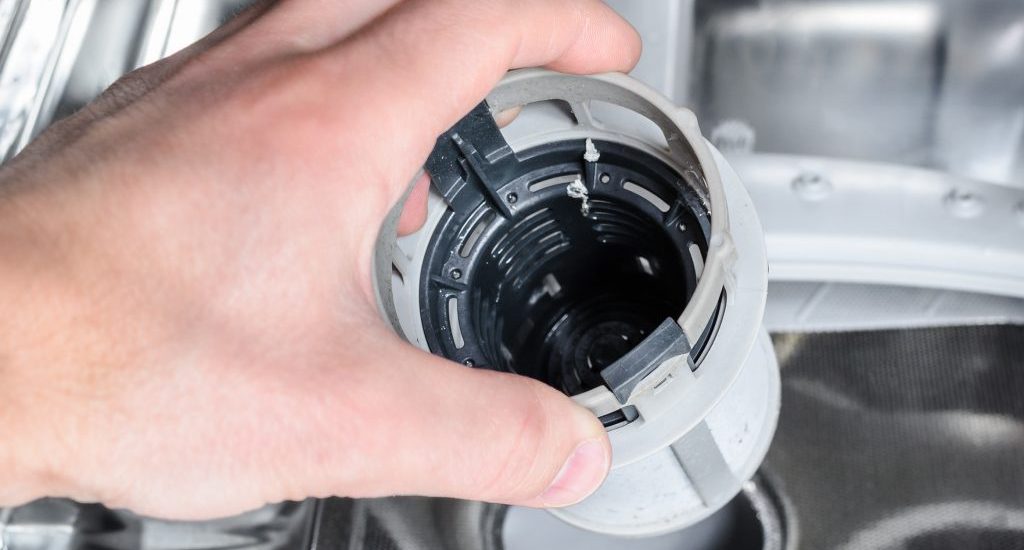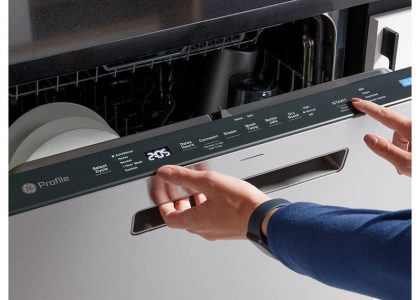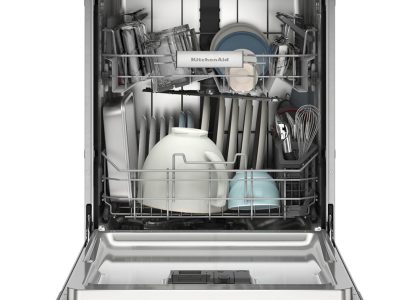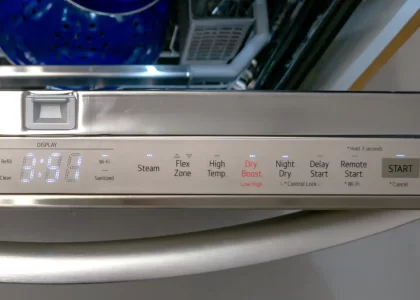Identifying the Source of Dishwasher Odors
A dishwasher is a household appliance that is used to wash and sanitize dishes, utensils, and cookware. It is typically located in the kitchen and is used to save time and effort in cleaning up after meals. How to get smell out of dishwasher? Dishwashers use a combination of hot water and detergent to clean the dishes, and some models also have a drying feature to eliminate the need for towel drying. Dishwashers come in various sizes and configurations to accommodate different kitchen spaces and dishwashing needs.

Common Causes of Foul Smells
When your dishwasher has a bad odor, it’s often due to trapped food particles, grease, and soap scum. These remnants can decay over time and lead to smelly bacteria growth. Mold may also form in damp, hidden spots inside the dishwasher. Other times, clogged filters or drain hoses are to blame. If plastic items melt, they can emit a sharp, burning smell too. Regular checks for such issues are crucial to avoid unpleasant smells.
Signs Your Dishwasher Needs Cleaning
A sure sign that your dishwasher needs a clean is a persistent bad smell. If you spot food build-up, mildew, or grime inside, it’s time to clean. Standing water at the bottom, or dishes coming out not fully clean, also suggest it’s cleaning time. Listen for strange sounds, like gurgling, which could indicate a blockage. It’s better to clean your dishwasher before these signs become obvious, as a preventative measure.
Essential Cleaning Techniques
Proper cleaning is key to keeping dishwasher odors at bay. Here are three essential techniques.
How to Clean the Drain Filter
First, find and remove the drain filter. Wash it thoroughly with hot soapy water, using a brush for crevices. Check the drain for debris, wipe, and reinstall the filter. A clean drain filter helps prevent odors.
Cleaning and Inspecting Spray Arms
Next, address the spray arms. Remove them and rinse under warm water. Use a toothbrush to clear blockages from the holes. Also, inspect the mounting brackets for any residue. A clear spray arm ensures dishes clean well and can reduce smells.
Wiping Down the Interior and Door Seals
Lastly, clean the inside. Remove racks and wipe surfaces with a warm soapy mix. Pay close attention to door seals where grime collects. Cleaning these areas fights against mold and helps eliminate odors.
Deodorizing Your Dishwasher
To eliminate dishwasher smells, it’s important to regularly clean and maintain the dishwasher and its components. This can include running a dishwasher cleaning cycle with vinegar or a commercial dishwasher cleaner, cleaning the filter and spray arms, wiping down the rubber gasket, and ensuring proper drainage. Additionally, using a rinse aid and avoiding overloading the dishwasher can help prevent smells from developing in the first place. If the smell persists, it may be best to consult with a professional appliance repair technician. So, to keep your dishwasher smelling fresh, you can use simple ingredients like vinegar and baking soda.
Using Vinegar to Combat Odors
Vinegar is a powerful tool for neutralizing dishwasher odors. Here’s how to use it:
- Remove all dishes and detergent from the dishwasher.
- Place a bowl of white vinegar on the top rack.
- Run a hot wash cycle.
The vinegar’s acidity helps cut through lingering odors, leaving your dishwasher fresh.
Implementing Baking Soda for a Fresh Smell
Baking soda is also effective in deodorizing your dishwasher:
- After using vinegar, sprinkle a cup of baking soda across the dishwasher’s floor.
- Run a short hot water cycle.
This will help absorb and neutralize any remaining odors, enhancing freshness. Combine these steps as part of your regular cleaning routine to maintain a smell-free dishwasher.
Addressing Hard Water Issues
Hard water greatly impacts your dishwasher’s efficiency and smell. Hard water, due to its high mineral content, often leaves residues. These mineral deposits can cause foul smells and hinder proper cleaning.
Role of Water Softeners in Preventing Odors
Water softeners can be a solution to hard water problems in dishwashers. They remove minerals from the water, preventing deposit build-up. This helps keep your dishwasher clean and odor-free, enhancing its performance and longevity.
Preventive Maintenance for Your Dishwasher
To stop odors before they start, regular maintenance is key. A well-kept dishwasher not only smells better but also lasts longer and performs better. Here’s how you can stay on top of maintenance for your appliance.
Routine Cleaning Schedule
Set a monthly date for cleaning your dishwasher. Focus on the filter, spray arms, and interior. Use vinegar and baking soda every few months for a deeper clean. This schedule keeps smells away and catches problems early. Every load, scrape food from dishes to reduce residue. After each cycle, leave the door open a bit to dry out the inside and avoid mildew.
Professional Servicing and Checks
Once a year, get your dishwasher checked by a pro. They can tackle issues you might miss, like hidden clogs or wear. If you have hard water, consider servicing more often. A professional can ensure the appliance runs smoothly and advise on any needed repairs. This proactive approach can save you money and prevent odor issues in the long run.
Troubleshooting Persistent Odors
While periodic cleaning often removes odors, some stubborn smells may persist. Pinpointing and addressing these tenacious odors is crucial to maintaining a fresh-smelling dishwasher.
When to Seek Professional Help
If repeated cleaning efforts fail to eliminate bad smells, it’s time to consult a professional. This is especially true if you notice recurring water puddles or poor drainage. A technician can identify deeper issues, such as blockages in hoses or faulty seals.
DIY Solutions vs. Professional Services
For mild odor issues, try DIY solutions like vinegar and baking soda first. They are effective and cost-efficient for minor odor problems. However, for complex issues, professional services ensure thorough maintenance and can prevent potential damage to your dishwasher.
Steps of keeping dishwasher smelling clean and fresh
The smell of a dishwasher can vary depending on what has been washed in it, but it is often a clean, soapy scent with a hint of any lingering food or detergent residue. Some people may also notice a slightly metallic or plastic smell from the interior of the dishwasher itself.
- Clean the filter: Food particles and debris can get trapped in the dishwasher filter, causing bad odors. Remove the filter and clean it thoroughly with soapy water to remove any buildup.
- Run a cleaning cycle: Purchase a dishwasher cleaning product or make your own by mixing equal parts baking soda and vinegar. Place the mixture in a dishwasher-safe bowl on the top rack and run a hot water cycle to clean and deodorize the interior.
- Check the drain: Food and debris can also accumulate in the dishwasher drain, leading to unpleasant smells. Inspect the drain for any clogs and remove any blockages to ensure proper water drainage.
- Wipe down the interior: Use a damp cloth and mild detergent to wipe down the interior of the dishwasher, including the door gasket and edges where food particles and grime may be trapped.
- Leave the door open: After running a cycle, leave the dishwasher door open to allow it to air out and dry thoroughly. This can help prevent the growth of mold and mildew, which can cause unpleasant odors.
- Use a deodorizer: Place a dishwasher deodorizing product, such as a scented dishwasher tab or a bowl of baking soda, inside the dishwasher between cycles to help keep it smelling fresh.
By following these steps, you can effectively remove odors from your dishwasher and keep it smelling clean and fresh.







